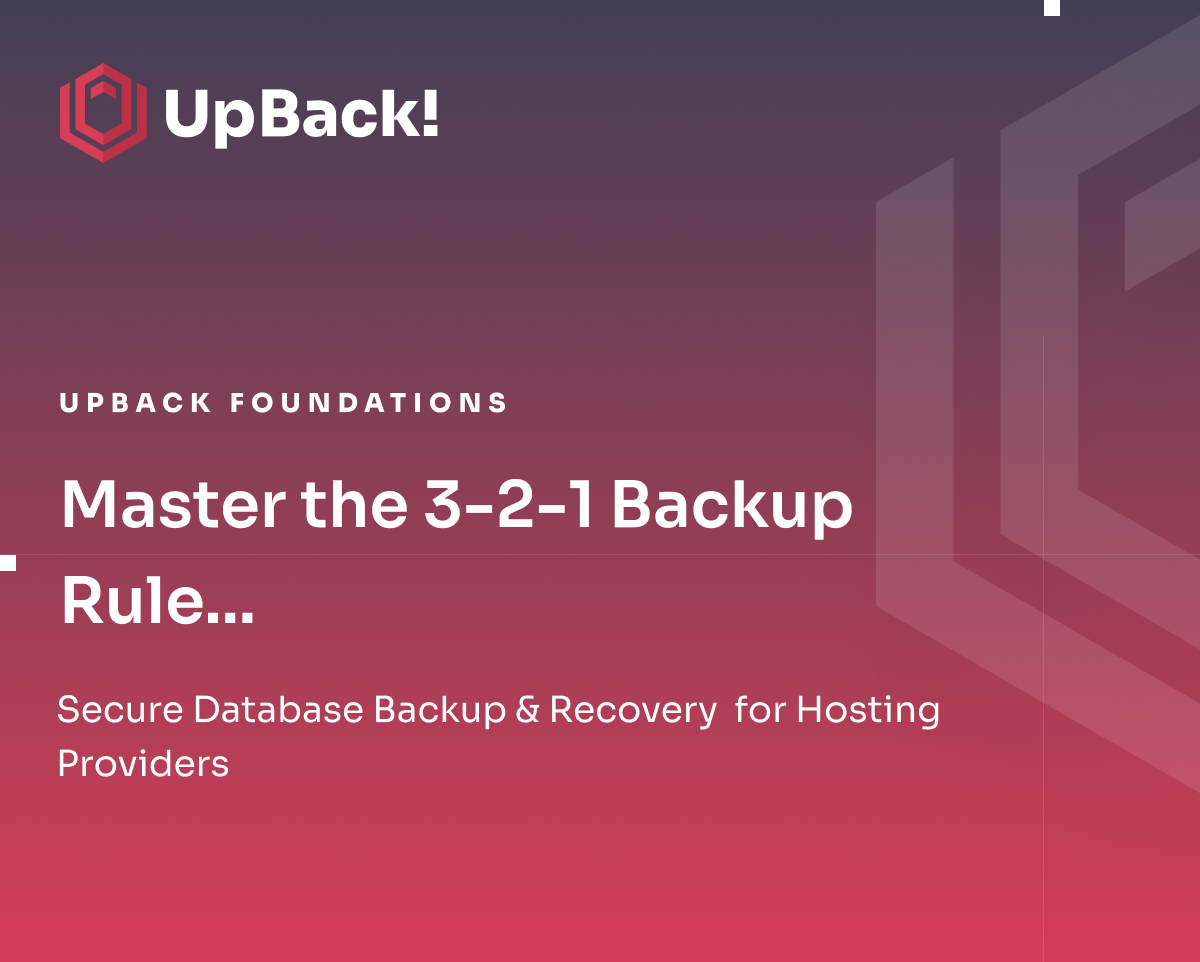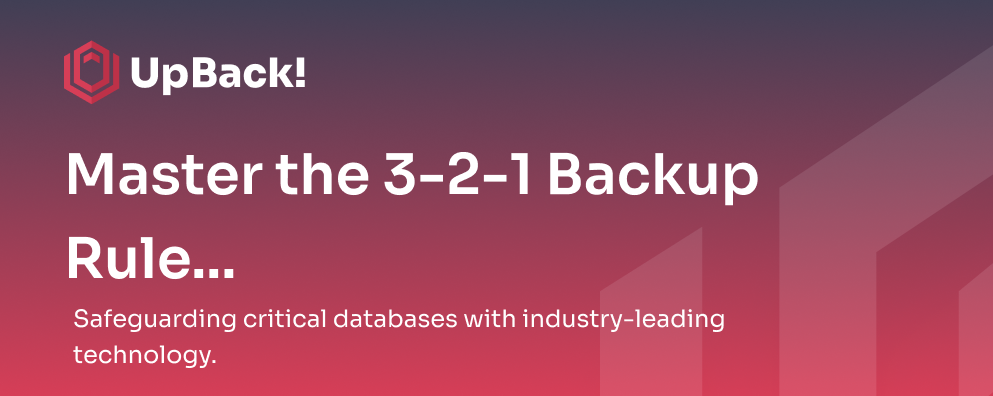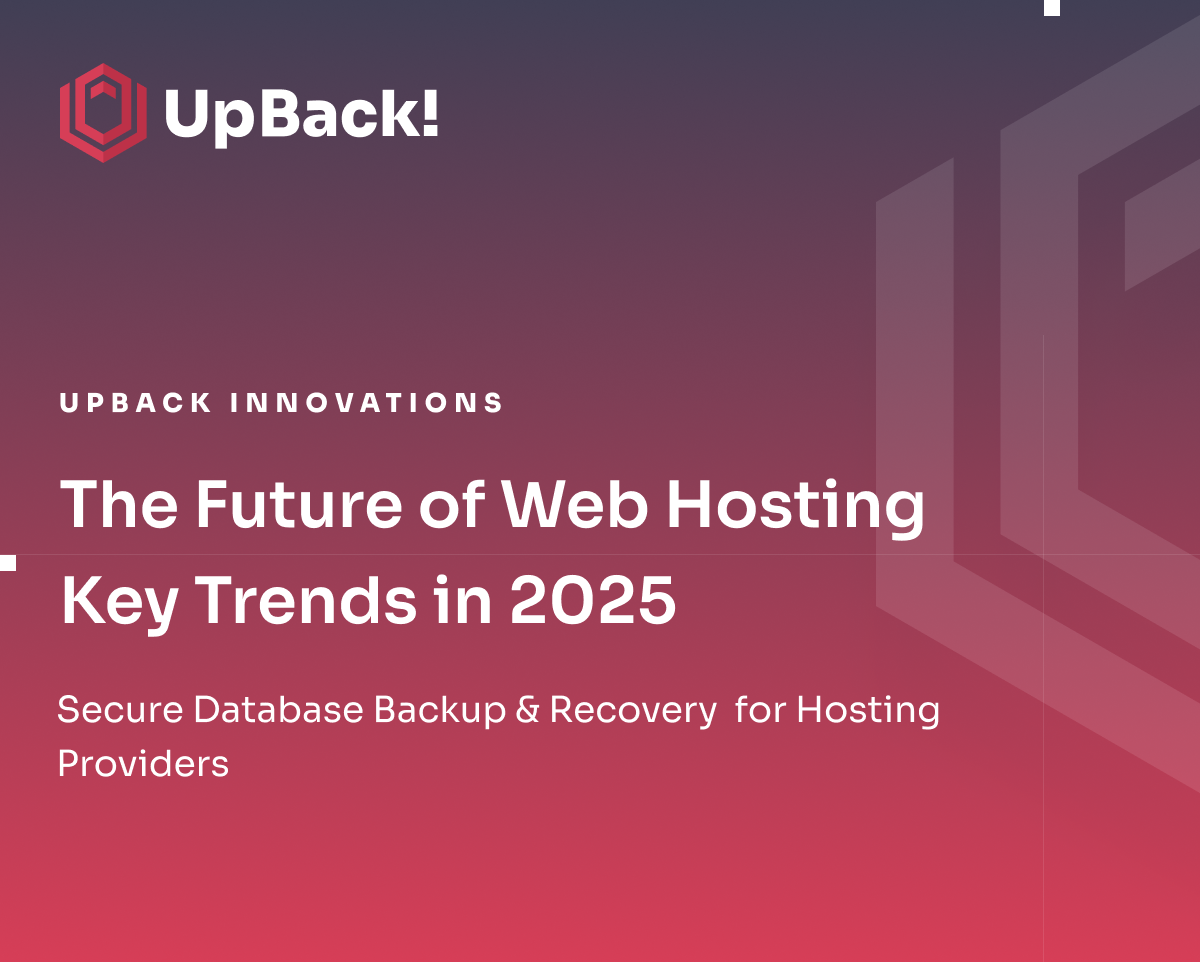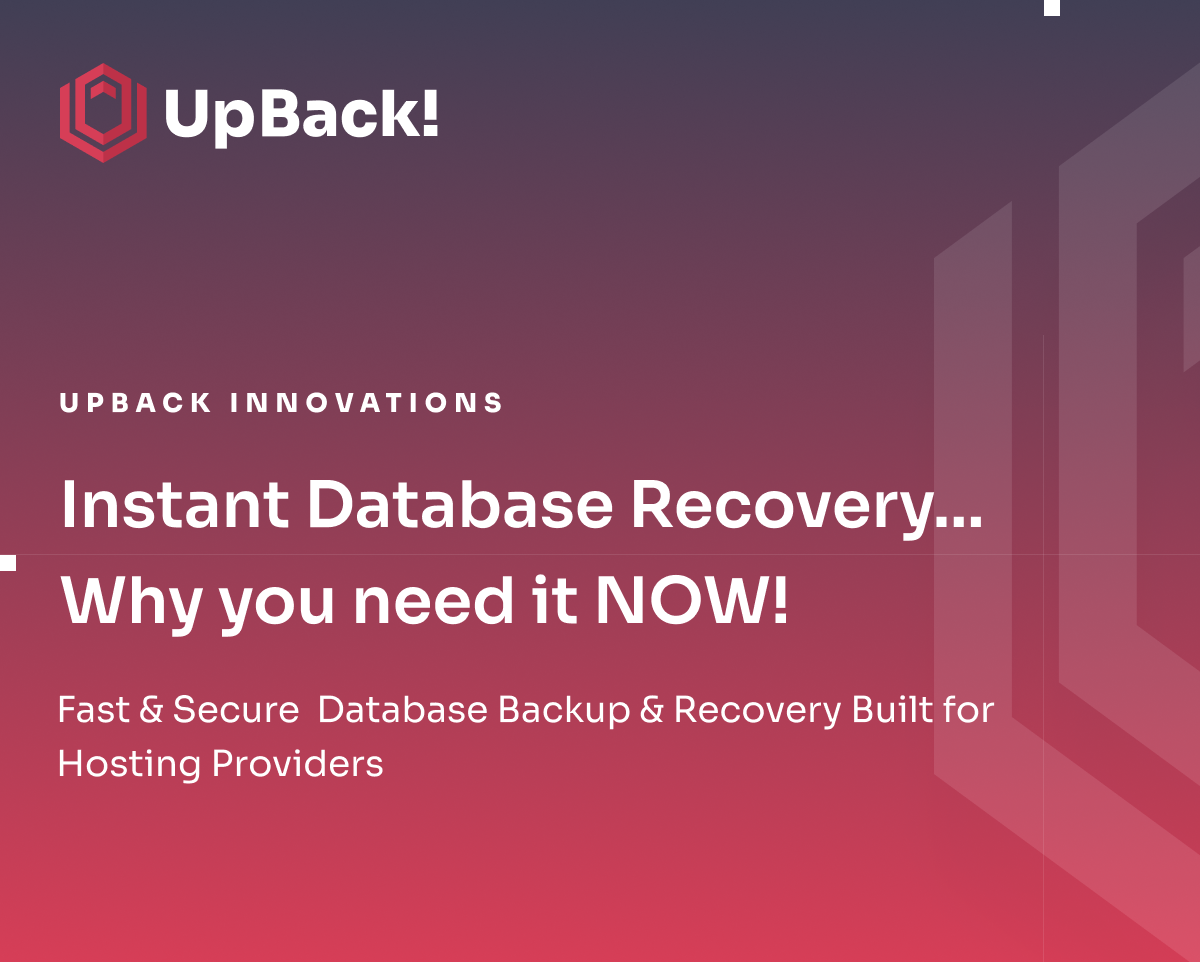Master the 3-2-1 Backup Rule: A Guide for Hosting Providers
In an industry where downtime can tarnish reputations and data loss can bring businesses to a standstill, the need for a robust backup strategy is non-negotiable. Cloud hosting providers, web hosting companies, and developers often manage critical data for their clients—data that, if lost, could result in operational chaos and a loss of trust.
The 3-2-1 backup method has become a gold standard in the world of data protection, offering a simple yet powerful framework for ensuring data availability. But while the concept is straightforward, implementing it effectively—especially at scale—can be a challenge.
That’s where UpBack! comes in. Designed with hosting providers and developers in mind, UpBack! makes it easy to meet the demands of the 3-2-1 method with minimal effort and maximum efficiency. In this blog, we’ll explore the 3-2-1 backup rule, why it’s essential for your business, and how UpBack! can help you implement it seamlessly.
What is the 3-2-1 Backup Rule?
The 3-2-1 backup rule is a widely recognized approach to data protection that ensures your business remains resilient against data loss. The rule is simple to understand and incredibly effective when applied correctly. Here’s what it entails:
3 Copies of Your Data
Always maintain three copies of your data: the original data and two backups.
This redundancy protects against the risk of corruption or accidental deletion.
2 Different Storage Media
Store your backups on two different types of media, such as local disk storage and cloud-based storage.
This reduces the chance of losing data due to media-specific failures.
1 Offsite Copy
Keep one copy of your backups in a separate, offsite location.
This ensures your data remains safe from localized threats like hardware failure, theft, or natural disasters.
While the concept is simple, implementing the 3-2-1 rule can feel overwhelming for businesses that rely on large-scale or complex infrastructures. Hosting providers and developers often need to balance efficiency, cost, and reliability, which is why automation tools like UpBack! can be a game-changer.
By aligning your backup strategy with the 3-2-1 rule, you’re taking a proactive step to protect both your business and your clients from potentially devastating consequences of data loss.
Why Hosting Providers and Developers Need It
For cloud hosting providers, developers, and web hosting companies, data is the lifeblood of operations. From managing client websites to running complex applications, ensuring data availability isn’t just a best practice—it’s a business imperative.
High Stakes for Hosting Providers
Hosting providers face unique challenges when it comes to data protection:
Downtime Equals Lost Revenue: A single hour of downtime can lead to significant financial losses and damage your reputation.
Client Trust is Paramount: Losing client data can irreparably harm your relationship with them, driving customers to competitors.
Regulatory Compliance: Many industries require strict adherence to data protection standards, and non-compliance can lead to hefty fines.
Challenges for Developers
Developers also operate in high-pressure environments where the risks of data loss are ever-present:
Accidental Deletions: Human error remains one of the leading causes of data loss.
System Failures: Even the most robust systems can fail, leaving data vulnerable without proper backups.
Data Corruption: Malicious attacks or software bugs can render critical files unusable.
How the 3-2-1 Rule Mitigates These Risks
The 3-2-1 backup method offers a reliable safety net:
Redundancy: Having multiple copies of your data means you can recover quickly from unexpected losses.
Resilience: By storing backups on different media and offsite, your data is protected from localized failures.
Compliance: Meeting data protection requirements is easier when your backup strategy adheres to best practices like the 3-2-1 rule.
For businesses managing critical client data, the stakes are simply too high to rely on ad hoc solutions.
UpBack! streamlines the process, offering hosting providers and developers a powerful platform to automate backups, meet compliance standards, and protect against worst-case scenarios.
Common Challenges in Implementing the 3-2-1 Rule
While the 3-2-1 backup rule is simple in concept, putting it into practice—especially for hosting providers and developers—can present significant challenges. Here are some common obstacles businesses face and how they can be overcome.
1. Managing Offsite Backups
Keeping one backup offsite is crucial, but managing offsite storage can be complex:
Cost Concerns: Cloud storage fees can add up, especially with large volumes of data.
Logistics: Transferring data offsite manually or using outdated tools can be time-consuming and error-prone.
Solution: UpBack! supports S3-compatible storage, enabling seamless offsite backups. With built-in automation, you can securely transfer data to offsite locations without manual intervention.
2. Ensuring Backup Consistency
Backups are only as good as their reliability. Without consistent testing, backups may fail to restore when needed:
Incomplete Backups: Skipped files or partial backups can leave critical data unprotected.
Lack of Testing: Many businesses overlook regular tests to verify that backups work.
Solution: UpBack! simplifies the process by providing reliable backups with minimal risk of errors. Automated features help ensure data consistency and enable easy restoration when needed.
3. Balancing Performance and Costs
For hosting providers managing multiple clients or developers handling large data sets, balancing speed and cost is a constant struggle:
Storage Costs: Maintaining three copies of every dataset can become expensive.
Performance Impact: Backup operations can sometimes slow down live systems.
Solution: UpBack! offers scalable, efficient solutions that minimize the performance impact on your systems. By optimizing storage usage and leveraging compression, UpBack! reduces costs while maintaining high-speed operations.
4. Navigating Complex Infrastructures
Hosting providers often manage complex, multi-tenant environments, which can complicate backup strategies:
Diverse Systems: Supporting multiple operating systems, databases, or storage setups requires a flexible solution.
Fragmentation: Using different tools for various aspects of the backup process can create inefficiencies.
Solution: UpBack! integrates seamlessly into diverse infrastructures, providing a unified platform for managing backups across MySQL, MariaDB, and PostgreSQL databases.
5. Human Error
Even with the best tools, manual processes are prone to mistakes. From skipped backups to misconfigured storage locations, human error can jeopardize your data.
Solution: UpBack! minimizes manual intervention with intuitive automation, so your backups run reliably in the background, safeguarding your data without constant oversight.
To wrap up!
Implementing the 3-2-1 backup rule is more than just a best practice—it’s a lifeline for cloud hosting providers, developers, and web hosting companies who manage critical data daily. By safeguarding your business with multiple data copies across diverse storage media and offsite locations, you can mitigate the risks of data loss, downtime, and client dissatisfaction.
However, a robust backup strategy doesn’t have to be complex or time-consuming. With UpBack!, you can simplify the process through automated, reliable, and scalable backup solutions designed specifically for your needs. Whether you’re managing MySQL, MariaDB, or PostgreSQL databases, UpBack! ensures your data is always protected and easily recoverable. Check out our blog on our backup and recovery strategies here for more in depth information!
Take the Next Step
Don’t leave your business vulnerable to data loss. Here’s how you can get started:
Learn More: Dive deeper into our blog posts for more tips and insights on backup best practices.
Understand Our Platform: Check out the UpBack! Wiki to see how our software works and integrates with your infrastructure.
Start Your Free Trial: Experience UpBack! first hand with a 7-day free trial.
Partner With Us: Interested in offering UpBack! to your clients? Fill out our Partnership form to learn more about collaborating with us.
Protect your data, strengthen your business, and safeguard your clients with UpBack! Start implementing the 3-2-1 backup rule today and enjoy peace of mind knowing your critical data is secure.




